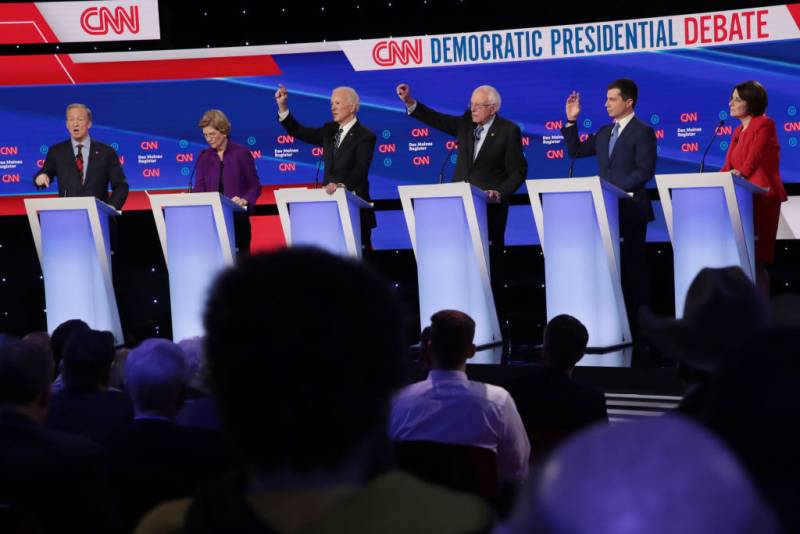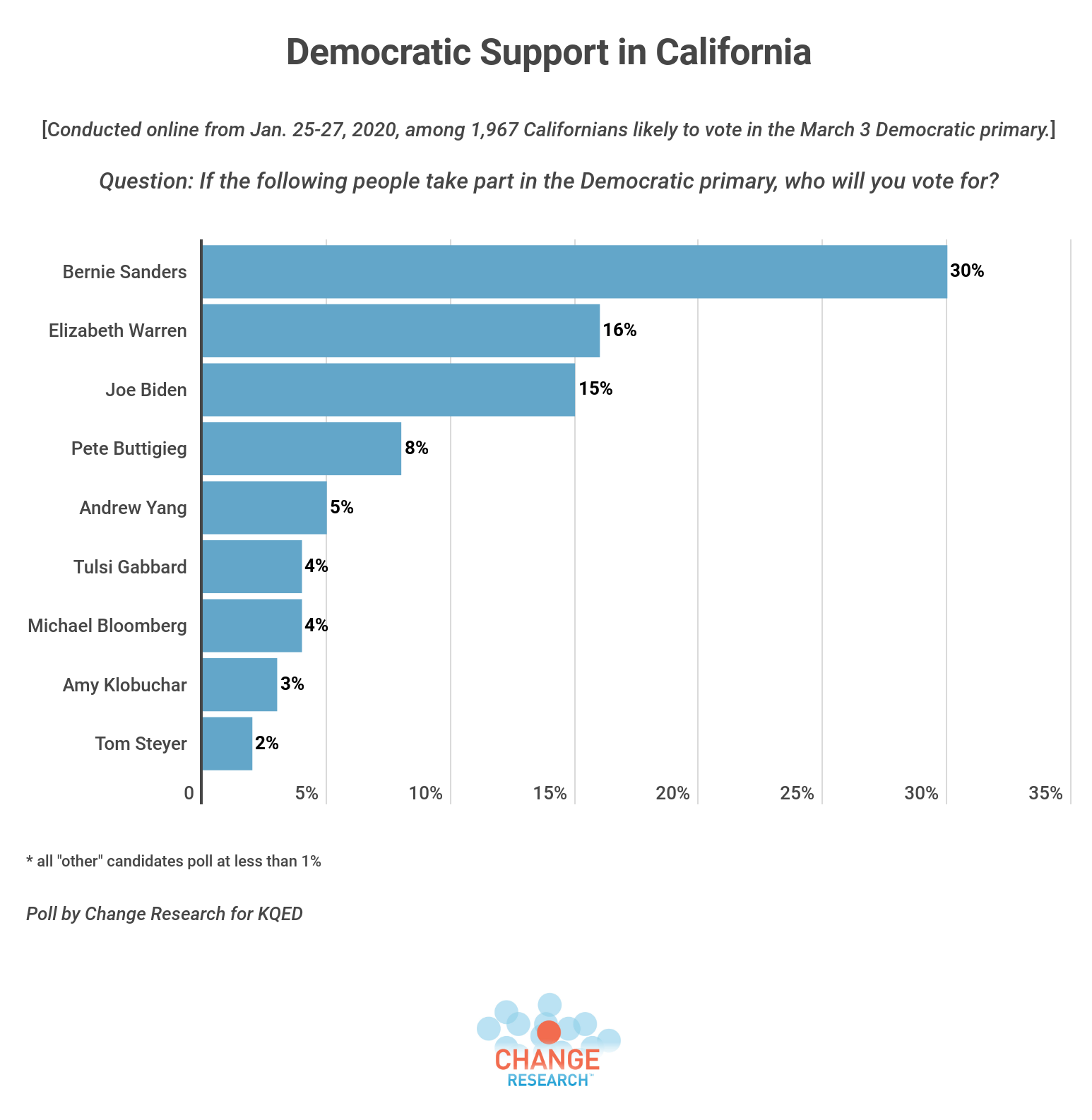Sanders' strength in California comes from voters aged 18-34, with 53% supporting him, the poll shows. Sanders is also the top choice of Latino voters (36%) and Asian American voters (27%).
Meanwhile, Biden has retained his lead among California's African American voters, with 35% supporting him and 27% supporting Sanders.
Rounding out the field, former South Bend, Indiana Mayor Pete Buttigieg placed fourth in the poll, favored by 8% of Californians likely to vote in the Democratic primary, while entrepreneur Andrew Yang registered 5% support. Rep. Tulsi Gabbard of Hawaii and billionaire and former New York City Mayor Mike Bloomberg were the top choice of just 4%, followed by Minnesota Sen. Amy Klobuchar (3%) and billionaire Californian Tom Steyer (2%).
No candidate can receive any delegates in the California primary without reaching 15% of the vote.
Just days before Californians will begin receiving ballots in the mail, 13% of Democratic voters say they remain undecided. But 95% of voters who did choose a favorite candidate said there was little or no chance they'd change their mind.
The results show both the limits and the power of large media buys for Bloomberg, who is pouring millions into TV advertisements in markets throughout the state.
"Bloomberg's advertising blitz hasn't yet had an impact statewide, but we've seen how that can change quickly," Reilly said. "Might be too soon to have an impact in a state the size of California, versus the impact advertising clearly had for [Tom] Steyer in South Carolina and Nevada."
On one non-political topic — the Super Bowl — 37% think the San Francisco 49ers will win Sunday, while 16% believe the Kansas City Chiefs will come out on top. Nearly half of respondents — 48% — say they're not sure.
And when it comes to news coverage, only 23% of Californians say they've heard "a lot" about the NFL's premiere game over the past couple weeks, compared with those who say they've heard a lot about impeachment (87%), the Australian wildfires (66%) and the coronavirus outbreak (54%).
The poll is based on 1,967 interviews collected online from Jan. 25-27, 2020. The survey has a margin of error of plus or minus 3.4% for Democrats and 5.2% for Republicans.
Charts produced by KQED's Matthew Green

